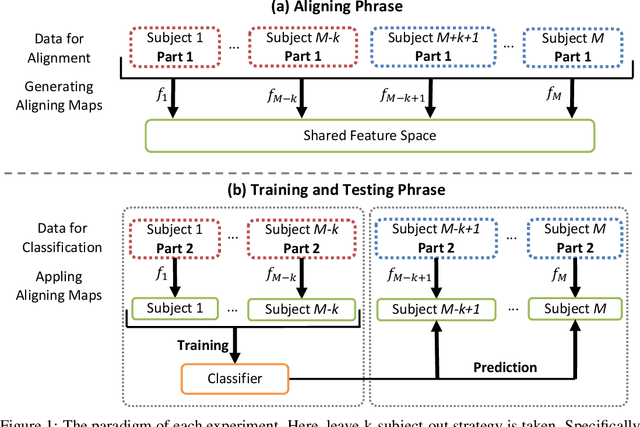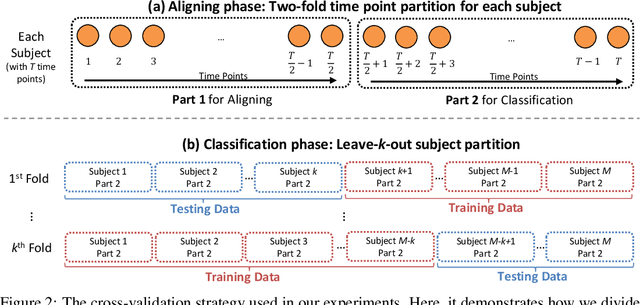A Graph-Based Decoding Model for Incomplete Multi-Subject fMRI Functional Alignment
Paper and Code
May 28, 2019



Aggregating multi-subject fMRI data is indispensable for generating valid and general inferences from patterns distributed across human brains. The disparities in anatomical structures and functional topographies of human brains call for aligning fMRI data across subjects. However, the existing functional alignment methods cannot tackle various kinds of fMRI datasets today, especially when they are incomplete, i.e., some of the subjects probably lack the responses to some stimuli, or different subjects might follow different sequences of stimuli. In this paper, a cross-subject graph that depicts the (dis)similarities between samples across subjects is taken as prior information for developing a more flexible framework that suits an assortment of fMRI datasets. However, the high dimension of fMRI data and the use of multiple subjects makes the crude framework time-consuming or unpractical. Therefore, we regularize the framework so that a feasible kernel-based optimization, which permits non-linear feature extraction, could be theoretically developed. Specifically, a low-dimension assumption is imposed on each new feature space to avoid overfitting caused by the high-spatial-low-temporal resolution of fMRI data. Empirical studies confirm that the proposed method under both incompleteness and completeness can achieve better performance than other state-of-the-art functional alignment methods under completeness.
 Add to Chrome
Add to Chrome Add to Firefox
Add to Firefox Add to Edge
Add to Edge